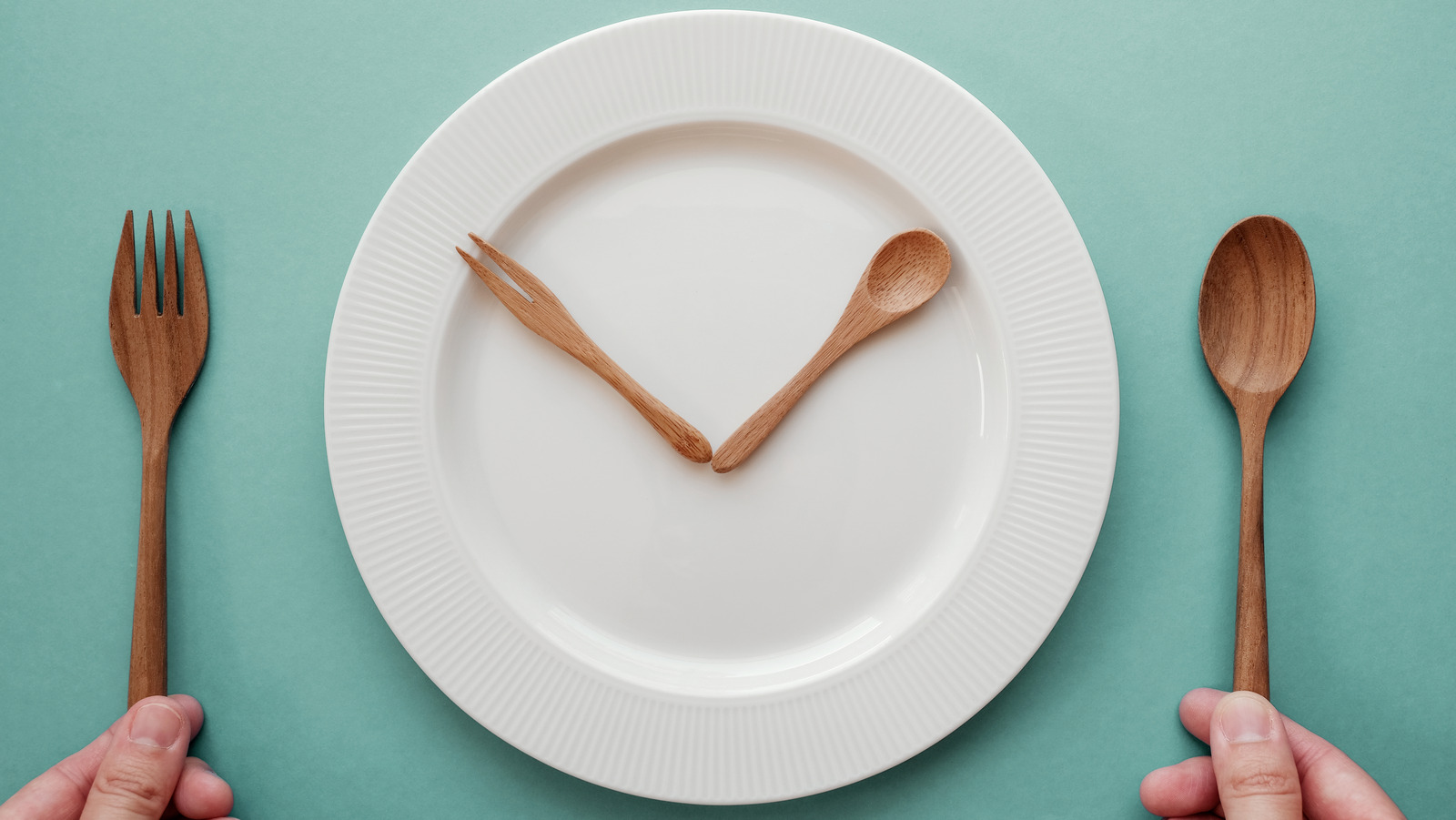
Beginner's Guide To Low Carb Intermittent Fasting
Low Carb Intermittent Fasting
Have you come across or heard anything about the low carb intermittent fasting method? You may not be familiar with intermittent low-carb fasting (IF) since it is not the most common of the available ways of intermittent fasting (IF). This eating pattern involves alternating between periods of fasting (calorie restriction) and consuming meals considered low in carbohydrates within a specific time frame to increase the rate of weight loss. As the name suggests, this eating pattern promotes rapid weight loss.
In contrast to starving, which can be voluntary or involuntary and can result in serious health complications and, in the worst case scenario, death, fasting is a voluntary act in which people abstain from food for various reasons, including spiritual or health enhancement purposes. Fasting is not recommended for everyone. Underweight or calorically inadequate people, people younger than 18, diabetics, pregnant or breastfeeding women, and people with chronic diseases should not try intermittent fasting diets.
Additionally, those who have a history of an eating disorder should not engage in the practice of fasting.
Understanding Low Carb Intermittent Fasting
Low-Carb Intermittent Fasting
What exactly is meant by combining a low-carb diet with intermittent fasting? The keto diet is one example of a meal plan that is low in carbohydrates and may be combined with intermittent fasting to create a new weight reduction approach keto diet known as low carb intermittent fasting. Keeping to one improves the functioning of the other, and vice versa. The goal of combining intermittent fasting with a low-carb diet is to reduce blood sugar levels and increase fat burning through reducing carbohydrates (and associated calorie intake) and the induction of ketosis. Many people combine a low-carb keto diet with intermittent fasting when they want to lose weight and control various health concerns.
intermittent fasting with limited carbohydrate intake
Intermittent Fasting Vs. Low Carb Diets
Low-Carb Intermittent Fasting
We often repeat that one plus one equals two, but where did we get the number two? It will help if you begin by comprehending the fundamentals, such as number one. Learning the function separate meal plans play is vital to understanding the meal plan for intermittent low-carb fasting.
Intermittent Fasting (IF)
In contrast to most diets, intermittent fasting emphasizes the timing of meals rather than the foods themselves. There are some distinct approaches to intermittent fastings, such as the 16:8 method and the 5:2 method. The most important thing to remember about how to conduct intermittent fasting is that regardless of your chosen strategy, you will always be required to limit your eating to a specific time window each day. You may, for instance, eat during the day and fast during the day, normally eat five days a week and restrict yourself to one meal between 500 and 600 calories. In addition to eating and fasting, sleep also plays an essential part in the IF plan. According to the New York Times, rest is considered a fasting phase because it keeps you from eating when you are not meant to and prevents you from eating when you are not intended to.
Benefits Of Intermittent Fasting
Low-Carb Intermittent Fasting
If you adhere to the schedule for when you should be fasting and when you should be eating, intermittent fasting (IF) might be a practical, sustainable, safe, and highly successful technique for preventing diabetes and losing weight. Some of its advantages are as follows:
Loss Of Weight
When it comes to losing weight, cutting back on calories is almost always necessary. However, if you practice intermittent fasting, you won't have to worry as much about the total quantity of calories you take in. When cells do not consume all carbohydrates broken down into Sugar for energy, insulin causes the surplus to be deposited in the fat cells. If you refrain from eating snacks during fasting, your insulin levels will drop. As a result, the Sugar stored in your fat cells will be released so that it may be used as fuel. During the period in which you are not eating, your body will draw upon its stores of fat for energy. Therefore, weight loss with intermittent fasting happens when insulin levels fall sufficiently and for sufficient time to burn additional fat. Insulin resistance is decreased as a result.
Low-Carb Intermittent Fasting
It was determined through an analysis of the existing research and presented in the journal Clinical Diabetes and Endocrinology that IF bits help reduce insulin resistance. Fasting and eating alternately may help you prevent type 2 diabetes. The primary characteristic of type 2 diabetes is insulin resistance, particularly in the adipose tissue, skeletal muscle, and liver. According to the study, intermittent fasting efficiently reduces body weight, leptin levels, fasting glucose, and fasting insulin levels while increasing adiponectin levels (11). It has been suggested that intermittent fasting can assist in the burning of fat in the liver, as well as in the reversal of insulin resistance and type 2 diabetes; however, diabetic people should only engage in this practice under the guidance of a medical professional.
Inflammation
Inflammation is a process carried out by the immune system to defend the body from harmful external agents, resulting in inflammation even when no pathogens are present. A variety of persistent disorders may be caused by it, including cancer, cardiovascular disease, type 2 diabetes, asthma, and Alzheimer's disease (5).
According to some studies, intermittent fasting can lower inflammatory markers and risk factors for cardiovascular disease, including homocysteine, CRP, and the total cholesterol to high-density lipoprotein ratio (6). (9). During fasting, monocytes, a kind of pro-inflammatory cell, enter a dormant state and are significantly less inflammatory than recently fed cells. Intermittent fasting with a reduced carbohydrate diet brain Health
Health
They demonstrated the benefits of IF on lowering neuroinflammation in research published in the Journal of the Alzheimer's Association in 2020. suggests that IF may protect the brain against the adverse effects of aging and illness (22). Another research that progressed for three years found that older persons who frequently performed IF had superior cognitive scores and reverted to groups with more significant cognitive function (the successful aging and regular aging groups) (10). Accordingly, it is possible that long-term intermittent fasting might improve one's memory, general cognition, and executive function; however, further study is required.
The Health Of The Heart
Health
It is possible that intermittent fasting is beneficial for the Heart. Research conducted on humans demonstrates that
- A diet low in carbohydrates promotes heart health
- The Illnesses Caused By IF
Following research presented by Harvard Health, IF may:
- It causes you to experience symptoms such as headaches, irritability, tiredness, and constipation that can make you feel unwell.
- This result in elderly persons losing an unhealthy amount of weight.
- Be hazardous for you if you are using certain drugs; as a result, you should discuss it with your physician before giving it a shot.
- Meals that are low in carbohydrates and high in fat are included in the Keto diet with a calorie count of 2000.
- Let Better ease the burden of this time-consuming procedure if you've finally worked up the courage to lose weight. Our software assists you in reorganizing your routines, reshaping your life, and becoming more fit.
Low Carb Diets
Low-Carb Diets
Consuming meals low in carbohydrates but rich in fat is part of a weight loss strategy called the low carbohydrate, high fat plan. In most circumstances, simple natural carbohydrates, simple, refined carbs, complex natural carbs, and complex, refined carbs are restricted. These include grains, fruits, legumes, bread, sweets, pasta, and starchy vegetables. In other instances, nuts and seeds may also be restricted. However, specific eating programs allow for consuming limited amounts of entire grains, fruits, and vegetables (16). While it is recommended that carbohydrates make up between 45 and 65 percent of your total daily calorie intake (between 900 and 1,300 calories if you consume 2,000 calories a day), a low-carb diet involves consuming as little as 0.7 to 2 ounces (20 to 57 grams) of carbohydrates, which provides 80 to 240 calories a day. It contrasts with the recommendation that carbohydrates make up between 45 and 65 percent of your total daily calorie intake. The ketogenic diet is an excellent illustration of low-carb, high-fat consumption. It begins by cutting your daily carb intake to between 20 and 50 grams, which creates a carbohydrate shortfall that tells the body to initiate a metabolic process called ketosis. Ketosis is a metabolic state in which the body shifts its primary fuel source away from glucose and toward lipids, produced as a byproduct of the breakdown of fatty acids into compounds known as ketones.
The Advantages Of A Diet High In Fat And Low In Carbohydrates
Low-Carb Intermittent Fasting
Diets low in carbohydrates encourage people to consume a significant quantity of healthy fats, fewer carbohydrates, and a considerable amount of protein, which causes the body to get its energy from other fuel sources (especially fats). The following are some of the benefits of this:
Loss Of Weight
Eliminating carbohydrates from the diet is one of the most successful strategies for weight loss. Because they will be eating fewer calories overall, people who follow a diet low in carbohydrates may find that they lose weight more quickly than those who follow a diet low in fat. A diet low in carbohydrates may also reduce hunger and the number of calories consumed, and with time, the body can adjust to having a smaller appetite. A randomized controlled trial of a low-carbohydrate diet for weight reduction demonstrated that satiety (fullness) might be better retained on a low-carbohydrate diet than on a low-fat diet. The study determined which diet was more effective in promoting weight loss. Having a diet low in carbs may reduce levels of hormones associated with metabolic syndromes, such as insulin and ghrelin, decreased levels of both blood sugar and insulin
blood sugar and insulin
Diets low in carbohydrates and those based on ketosis benefit those coping with diabetes and insulin resistance. According to Diabetes UK, lowering one's carbohydrate consumption can help remove the spikes and falls in sugar levels after meals, make diabetic management easier, lower HbA1c levels, reduce the risk of severe hypoglycemia, and prevent diabetes complications. Other benefits of following a diet like this include enhanced mental clarity, improved skin complexion, and reduced feelings of exhaustion throughout the day.
Fasting cycles that are low in carbohydrates may help lower blood pressure and improve heart health.
Low-Carb Intermittent Fasting
Low-carb diets can effectively mitigate one of the cardiovascular risks associated with type 2 diabetes, impaired glucose tolerance, and high blood pressure, according to a study published in the International Journal of Environmental Research and Public Health. A carbohydrate diet encourages good dietary choices, such as consuming healthy fats that regulate cholesterol levels, resulting in considerable protection for the cardiovascular system. A ketogenic diet may also assist in reducing levels of low-density lipoprotein. Snacks for Intermittent Fasting:
- Ten or More Healthful Bites That Will Assist You in Maintaining Your Routine
- A rapid and severe carbohydrate consumption cut may result in transient adverse effects such as constipation, muscular cramps, poor breath, lethargy, and headaches.
- Carbohydrate restriction for an extended period may lead to shortages in vitamins or minerals and gastrointestinal issues.
- Consuming substantial quantities of fat and protein derived from animal sources may increase your chance of developing cardiovascular disease and some malignancies. You need to pay attention to the fats and proteins you consume while on this diet, and you should limit your intake of foods that include saturated and trans fats, such as high-fat dairy products and meat, because these foods may raise the risk of developing heart disease.
Low Carb And Intermittent Fasting
Low-Carb Intermittent Fasting
Learn everything there is to know about low-carb, high-fat intermittent fasting now that you have a comprehensive image of the different diets.
How To Follow The Low Carb Diet While Maintaining Your Intermittent Fasting Routine
When it comes to intermittent fasting while adhering to a low-carb diet, the most important thing to remember is to deprive yourself of food for predetermined amounts of time at regular intervals and to consume low-carb meals when you consume food. For example, if you follow the 14:10 approach and your calorie cut-off is at 7 p.m., you will fast overnight and start eating again after 14 hours, which is when you wake up at 9 a.m. You will eat all your meals between 9 a.m. and 7 p.m., as this is when the 14:10 approach recommends you resume eating.
If you follow the 16:8 method and your calorie cut-off is at 6 p.m., you will fast overnight and start eating again after 16 hours, which is when it will be 10 a.m. You will eat all your meals between 10 a.m. and 6 p.m., as the 16:8 method requires you to eat all of your meals between those times. It indicates that you will always keep to a regular eating pattern while on the low-carb intermittent fasting plan you have chosen. It is essential to remember that most of your fasting hours will occur throughout the night when you are sleeping, and this is an opportunity for you to avoid late-night nibbling on foods containing hidden carbs.
Low-Carb Intermittent Fasting
Baby steps are vital to get started with the keto low-carb intermittent fasting diet. Since a ketogenic diet is a high-fat and very low-carb method of eating, it is best to begin by consuming meals that are low in carbohydrates before moving on to foods that are extremely low in carbs. Doing so will help ensure your safety. People having trouble getting into ketosis despite following a ketogenic diet may find that intermittent fasting is beneficial since it can assist in kickstarting the process. When you follow a keto low carb irregular fasting plan, you must be aware that you may suffer adverse side effects such as weariness, irritation, or overeating on days when you are not fasting.
The Ketogenic Diet Is An Easy Alternative To Low Carb Dieting With This 7-Day Meal Plan.
Low-Carb Intermittent Fasting
What Foods Are Considered To Be Low In Carbohydrates During Intermittent Fasting?
It is essential to have a solid understanding of what constitutes a low carb intake during intermittent fasting before beginning a low carb intermittent fasting strategy. It will help you avoid eating too much or too little during your fasting periods. Foods that are low in carbs include:
- Meat includes beef, hog, lamb, game, and chicken, among other options.
- Fish and other types of seafood, including, but not limited to, mackerel, salmon, sardines, and herring.
- Eggs.
- Natural fats, high-fat and dairy sauces such as butter, cream, Greek or Turkish yogurt, high-fat cheeses, nuts, olive oil, and coconut fat. Natural fats, high-fat, and dairy sauces such as mayonnaise.
- Vegetables that grow above the earth include broccoli, cauliflower, cabbage, kale, eggplant, spinach, leafy greens, cucumber, asparagus, peppers, zucchini, olives, mushrooms, onions, tomatoes, and lettuce are examples.
- Fruits like avocados and berries are examples of fruits.
- Drinks that are good for your health, such as water, black tea, and coffee made without milk or Sugar
Low-Carb Intermittent Fasting
When following a diet plan that focuses on intermittent low-carb fasting for weight reduction, you should steer clear of meals that are high in carbohydrates, such as:
You may find Sugar in various foods and drinks, including soft drinks, juice, sweets, chocolate (occasional use of dark chocolate is OK), pastries, ice cream, and cereals for breakfast.
You may find the substance known as starch in foods like flour, items made from wheat, refined cereal grains, potatoes, beans, and lentils.
Beer and sweets, or higher-sugar fruits, are acceptable options.
Benefits Of Low Carb Diet Plus Intermittent Fasting
Low-Carb Intermittent Fasting
Should you combine low-carbohydrate diets with a fasting schedule that varies in length? You may, but first, check with your primary care physician and a dietitian. Both intermittent fasting and low-carb diets aim to achieve the same general results and aims. For instance, they both seek to reduce blood sugar and insulin levels and induce ketosis, which can assist in the breakdown and burning of fat stored in the body. Consuming meals heavy in fat and low in carbohydrates after fasting for an allotted amount daily amplifies and emphasizes the positive effects of both activities. In a nutshell, it helps in the following ways:
Weight loss: Diets low in carbohydrates and intermittent fasting are practical techniques for shedding excess pounds. You may anticipate tremendous outcomes if you pursue one of them, and you can make the most.
Low-Carb Intermittent Fasting
When it comes to bringing down blood sugar levels, one study found that diabetic patients could reduce their glucose levels in 24 hours by as much as 35 percent with low-carb diets and as much as 49 percent with fasting. A diet that combines the two may be more effective at bringing down blood sugar levels.
Managing insulin resistance and diabetes: As was noted earlier, the combination has the potential to lower glucose and insulin levels in the body. It, in turn, causes a reduction in the amount of fat stored in the body, as insulin is a hormone that keeps fat.
Creates a quicker road to ketosis: Intermittent fasting with a low-carb diet may help your body reach ketosis faster.
Also, see: Keto-fiber foods include the following 15 low-carb, high-fiber foods that won't cause you to get kicked out of ketosis.
To a large extent, what you eat and when you consume it will determine how effectively the low-carb intermittent fasting diet works for you. Therefore, your goal should be to choose a meal plan with fewer than 20g of net carbohydrates per day and select the most convenient timeframe.
Conclusion
Low-Carb Intermittent Fasting
In a scientific sense, adhering to a low-carb diet may work better when you fast, and intermittent fasting may function better when you follow a low-carb diet; this means that the two practices are complementary. Therefore, if you want to shed some pounds and keep your health in check, intermittent fasting while adhering to a low-carb diet could be your best bet. Fasting should be avoided by pregnant or breastfeeding persons and those with underlying diseases or eating disorders, even though it is safe and helpful for many people. Before beginning a regimen of intermittent low-carb fasting, it is essential to get the advice of your primary care physician and a nutritionist. It will allow them to create a diet tailored specifically to your needs and ensure your success with the diet. Low carb intermittent fasting is lovely, but in addition to following a healthy diet, you need to engage in vigorous physical activity. Your body will be grateful to you for doing so.











